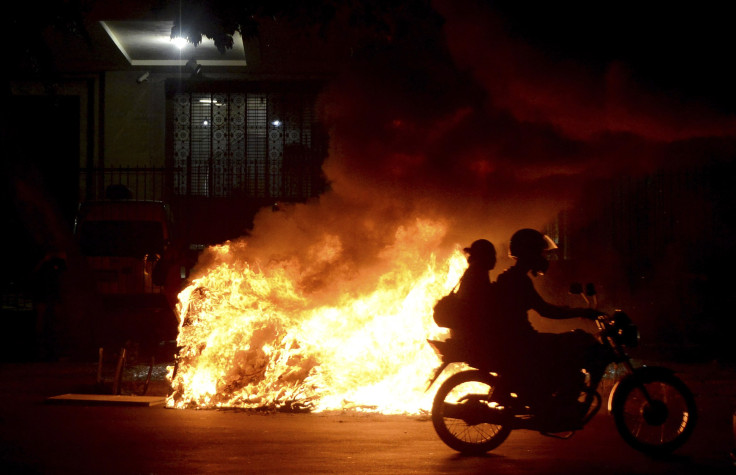
The World Cup is slated to kick off in less than a month and there has been a lot said about whether Brazil is ready to host the acclaimed sporting event and whether the South American nation will be safe for international tourists. But before the games have even begun, there is news about how the upcoming games will be affecting locals since thousands of Brazilians are now homeless and they blame the World Cup.
The Associated Press reports that Brazilians are living illegally on land near the World Cup stadium, claiming that the construction of the arena has caused a hike in rent and have left them homeless. These homeless Brazilians are now living in poor conditions, with little food and no privacy using tarps and plastic bags as the foundation of their new residences.
"We are not against the World Cup," said Rita de Cassia, a 35-year-old nurse -- who says her family left their home after her landlord doubled the rent on her one-bedroom house nearby -- to the Associated Press. "We are against how they are trying to belittle us. They are giving priority to soccer and forgetting about the families, about the Brazilian people."
The plight of the Brazilians should come as no surprise, as Businessweek reported foreign visitors are turning to the city's slums for accommodation due to the shortage of hotel rooms and rising prices -- roughly 300,000 are expected to be staying in Rio de Janeiro during the World Cup and there are 55,400 hotel beds ready. An estimated 1.4 million of the city’s 6.3 million residents live in the slums of Rio de Janeiro, which are often controlled by drug gangs.
In addition to being displaced, safety is also a concern for those who are now homeless and for those who plan to visit Brazil during the World Cup. Violence erupted last month in Rio de Janeiro's Pavao-Pavaozinho slum after the dead body of 25-year-old Douglas Rafael da Silva Pereira, a popular dancer for a TV show on Brazil's Globo network, was found.
The slums of Brazil have notoriously been controlled by drug gangs for decades and in 2008, the government began a program to drive gangs out of the slums. An estimated 37 units have been created to monitor the slums, which house 1.5 million people, there have been long been reports of rough tactics by authorities. The measure was taken ahead of Rio hosting two major international events: the 2014 World Cup and the 2016 Summer Olympics.
While the Brazilian government is taking proactive steps to make the country safer -- officials doled out $900 million from infrastructure to public safety in December -- the verdict will not be out until the events take place. The nation is, unfortunately, making headlines for all the wrong reasons when it comes to violence and safety. Last year, an American woman was assaulted and gang-raped in a van from a tourist-friendly neighborhood in Brazil and Sao Paulo, one of the most popular cities in Brazil, had a record year in murders in 2012.
© 2025 Latin Times. All rights reserved. Do not reproduce without permission.




